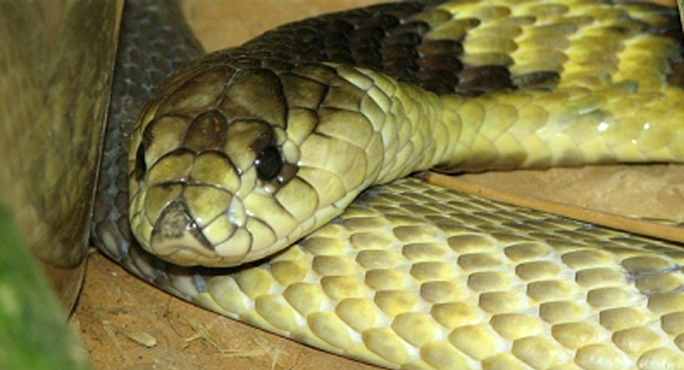Photo courtsey Fox News
Imagine walking around New York City and coming across a 20-inch snake – a poisonous Egyptian cobra, which proceeds to bite you.
It’s not a completely unlikely scenario: Officials at the Bronx Zoo have closed the Reptile House since Friday after learning the adolescent snake was missing (although officials do believe the exotic snake is confined to an area of the building that is not accessible to the public).
But, it does have people thinking – how do you handle a snake bite?
“The venom is quite serious – immediately get yourself to a hospital for anti-venom,” said Chris Kilham, The Medicine Hunter and Fox News contributor. “You have precious little time. The whole thing about sucking out the venom has proven unsuccessful.”
Kilham said you could tie a tourniquet above the snake bite, to try to stop the venom from traveling to the rest of the body.
“If you can do a tourniquet, get to the hospital immediately – there is no home remedy for this,” Kilham added.
Dr. Theodore Bania, a medical toxicologist at St. Luke’s Roosevelt Hospital in New York City, agreed with Kilham, and said if you are bitten by a snake, you should immobilize the extremity.
Bania said you should never use over-the-counter venom extractors because you could end up harming yourself more than helping yourself – especially if the snake didn’t end up injecting any venom into your body.
Once you get to the hospital, Bania said doctors try to determine what kind of snake you were bitten by and what type of venom it was, as there are different antidotes to use.
“There are different antidotes based on what kind of snake it is, but there is a common antidote for common snake bites indigenous to the U.S.,” Bania said. “A lot of people import snakes to New York, and then they need specific antidotes.”
Bania said envenomation can occur within minutes if the venom gets into the vein, or longer – up to 12 to 24 hours, depending on what kind of snake bites you, and where it bites.
“Cobras can cause some local tissue swelling and paralysis rather quickly, but most cases don’t happen that quickly,” Bania said. “There is usually time to treat that person.”
The good news is that snakes are not typically aggressive animals, Kilham said, so if you don’t bother them, they likely won’t bother you. However, there is no real way to tell whether a snake is poisonous or not.
Since this was an adolescent snake, Kilham said this is the most dangerous. Adolescent snakes “always give it their all; they just give you a walloping bite.”
Snakes can survive in both hot and cold weather – Kilham said there are poisonous snakes living for years at the highest altitudes of the Himalayan Mountains, indicating that if the Egyptian cobra did escape the zoo, he could survive New York’s frigid temperatures.
“If you see a snake, stay away from it – don’t imagine you can handle it,” Kilham said. “Just assume you should not be playing with it.”
The Associated Press contributed to this article.


